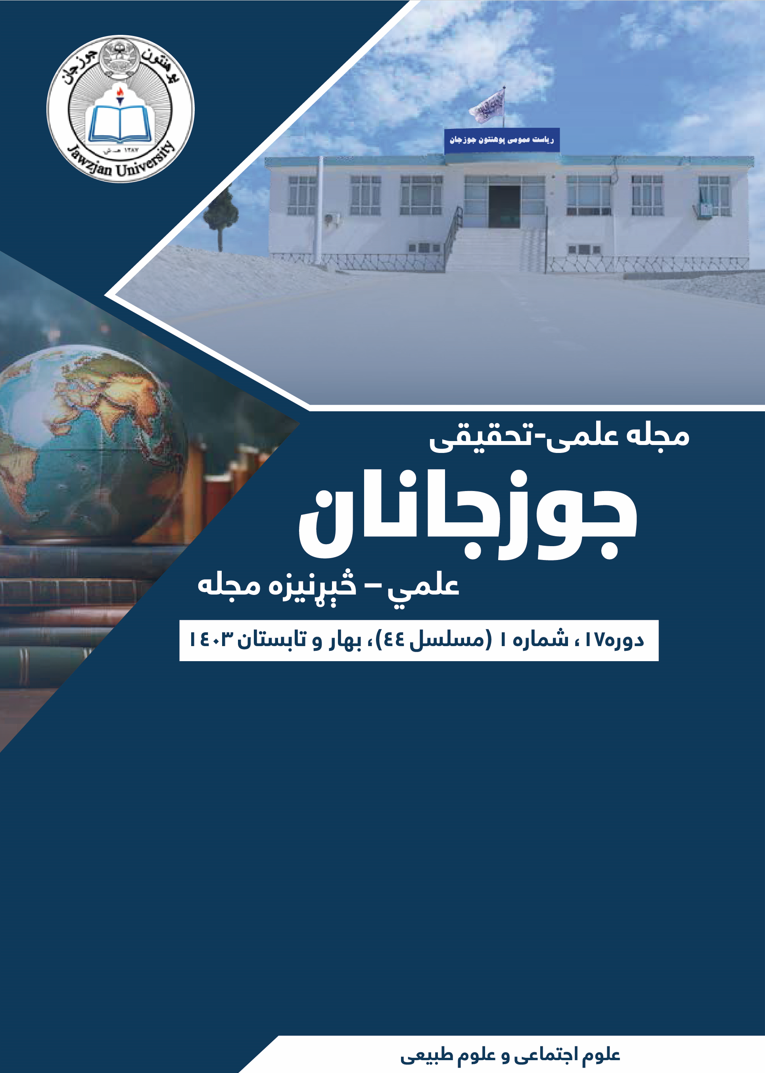Virtual Currencies and Their Taxes
DOI:
https://doi.org/10.69892/jawzjanan.2024.12Keywords:
Virtual Currencies, Bitcoin, Tax Evasion, Blockchain, TechnologyAbstract
The growth and development of financial technologies in recent decades have had profound and diverse impacts on both national financial systems and the global financial infrastructure. Financial products and services based on these technologies have not only facilitated and enhanced the quality and speed of global financial transactions but have also challenged the traditional control that governments have over the global financial system. A prominent example of this shift, which has witnessed significant growth and is continuing to evolve, is virtual currencies. The nature of these currencies and, more importantly, the methods for taxing their transactions, remain surrounded by ambiguities. This paper seeks to examine the concept and nature of virtual currencies, with a particular focus on how taxation can be implemented in relation to these currencies. Utilizing a descriptive-analytical research method and library-based data collection, this study concludes that virtual currencies are digital forms of money created in cyberspace, operating without a regulatory authority or legal backing, such as physical fiat currencies. Due to reasons including their decentralized nature, high speed, and efficiency, virtual currencies have gained widespread acceptance among many countries. However, they also face opposition from some nations due to concerns such as high energy consumption, the risks of money laundering, tax evasion, and diminished governmental control over certain international financial transactions. Furthermore, the implementation of an efficient tax system for virtual currencies requires advanced financial infrastructure, robust technological frameworks, and close integration with global financial and monetary systems. For countries lacking such capabilities, taxing virtual currencies poses significant challenges.
References
القرآن الکریم
ابراهیمی، سید نصرالله؛ محمودی، امیررضا و میر بالاجوردی، سیده مهشید. (1401). بررسی تطبیقی سیاست کیفری انتشار اطلاعات نادرست در رسانه های مجازی. فصلنامه علمی آموزه های فقه و حقوق جزاء، 1(1)، 1-20. https://sanad.iau.ir/journal/jcld/Article/692452?jid=692452. Doi:10.30495/jcld.2022.692452.
ارزدیجیتال. (بیتا). آخرین وضعیت قانون گذاری ارزهای دیجیتال در افغانستان. بازيابی در جدی 20, 1403، از ارزدیجیتال: https://arzdigital.com/regulation/af/
اسپوتنیک افغانستان. (2022, اگست 29). بستن ارز رمزی از سوی طالبان/ درک نادرست، بازدارنده ای اسلامی یا جلوگیری از پولشویی؟. بازيابی در جنوری 9, 2025، از اسپوتنیک افغانستان: https://sputnik.af/20220829
العین فارسی. (2022, اگست 26). افغانستان خرید و فروش ارزهای دیجیتال را ممنوع کرد. بازيابی در جنوری 9, 2025، از العین فارسی: https://alainpersian.com/article/taliban-bitcoin-cryptocurrency-ban
امیرشکاری، نیما و لطیفی، زهرا. (1397). ارزهای دیجیتال و نظام مالیاتی؛ فرصت ها، چالش ها و استراتژی ها. هشتمین همایش سالانه بانکداری الکترونیک و نظام های پراخت، (ص. 1-30). تهران. بازیابی از https://civilica.com/doc/843004
ایندیپندنت فارسی. (1403, جدی 6). ممنوعیت ارز دیجیتال در افغانستان؛ اعضای ... بازيابی در جدی 20, 1403، از ایندیپندنت فارسی: https://www.independentpersian.com/node/411805
بانک مرکزی عراق. (2023، نومبر 13). ملخص تقرير تقييم مخاطر غسل الأموال وتمويل الإرهاب المرتبطة بـ الأصول الافتراضية ومزودي خدمات الأصول الافتراضية. بازیابی از البنک المرکزی العراقی: https://cbi.iq/news/view/2467
پویا، عید محمد. (1400). بررسی رمزارزها و درک مصرف کننده ها از آنها. تهران: دانشگاه خوارزمی.
رهبر، فرهاد. و میرزاوند، فضل الله. (1387). پولشویی و روشهای مقابله با آن. تهران: مجد.
سیلیک, آ. (1400, حوت 25). رونق رمزارز در افغانستان؛ آیا پول دیجیتال راه حلی برای بحران بانکی فراهم کرده است؟. بازيابی در جدی 20, 1403، از بی بی سی فارسی: https://www.bbc.com/persian/business-60750947
شاملو، باقر و خلیلی پاچی، عارف. (1399). چالش ها حقوقی- اقتصادی ارزهای مجازی برای نظام های سیاسی در پرتو نظریه جایگزینی. فصلنامه رهیافت های سیاسی و بین المللی، 12(1 «پیاپی 63»)، 125-152. Doi:10.29252/piaj.2020.100631
صفری, رضا. (1399, حوت 30). بررسی فرصتها و تهدیدهای ارزهای دیجیتال در افغانستان. بازيابی در جدی 20, 1403، از روزنامه اطلاعات روز: https://www.etilaatroz.com/120432/investigating-opportunities-and-threats-of-digital-currencies-in-afghanistan/
صفری, رضا. (1400, حمل 3). ارزهای دیجیتال؛ بررسی فرصتها و تهدیدهای آن در افغانستان (۲). بازيابی در جدی 20, 1403، از روزنامه اطلاعات روز: https://www.etilaatroz.com/120587/digital-currencies-investigating-opportunities-and-threats-in-afghanistan-2/
عبداله میلانی، مهنوش و اکبرپور روشن، نرگس. (1391). فرار مالیاتی ناشی از اقتصاد غیررسمی در ایران. پژوهشنامه مالیات، 20(13)، 141-168. بازیابی از http://taxjournal.ir/article-1-71-fa.html
قوامی پور سرشکه، محدثه و محمودی، امیررضا. (1401). چالش های حقوقی ارزهای دیجیتال با رویکردی بر بزه پولشویی. فصلنامه مطالعات حقوقی فضای مجازی، 1(3)، 38-52. Doi:10.30495/CYBERLAW.2022.696726
کدخدایی، عباسعلی و نوروزپور، حسام. (1399). چالش ارزهای مجازی در مبارزه با پولشویی و تأمین مالی تروریسم با تأکید بر اقدامات و توصیههای کارگروه ویژه اقدام مالی (FATF). فصلنامه علمی مجله حقوقی بین المللی، 37(62)، 7-29. Doi:10.22066/cilamag.2019.101998.1647
گروهی از مؤلفین. (1398). شناخت مفاهیم، شیوه سرمایه گذاری و کسب درآمد از ارزهای دیجیتال. تهران: نبض دانش.
محمد، كريمة حسن محمد. (2019، دسمبر). إطار مقترح للقیاس والافصاح المحاسبی والضریبی للعملات الرقمیة، کلیة التجارة. 165-192. Doi:10.21608/abj.2019.126552
منصور شطا، منصور علی. (2022). العملات الافتراضية المشفرة وأثرها على مستقبل المعاملات (الواقع وآفاق المستقبل). الجزءالأول 3/3(37)، 1776-1867.
مهدوی، احسان و یگان آبکنار، محمد. (11/6/1397). ارز مجازی: قانونگذاری در کشورهای مختلف و پیشنهادها برای ایران. مجلس شورای اسلامی، مرکز پژوهش های، تهران. بازیابی از https://sid.ir/paper/791248
Baer, K. et al. (2023, July 5). Taxing Cryptocurrencies. IMF Working Papers 2023, 144. Doi:10.5089/9798400246586.001.A001
Consumer Advisory. (2014, August). Risks to consumers posed by virtual currencies. Consumer Financial Protection Bureau, 1-6.
Marian, O. (2013, September). Are Cryptocurrncies Super Tax Havens? Michigan Law Review First Impressions, 112, 38-48. Retrieved from https://repository.law.umich.edu/mlr_fi/vol112/iss1/2
Marian, O. (2016, September 2). KRİPTO PARA BİRİMİ ÜSTÜN VERGİ CENNETİ Mİ? (IS CRYPTOGRAPHIC CURRENCY AN OUTSTANDING TAX HEAVEN?). (S. P. Keleş, Ed.) İÜHFM C.(LXXIV"74"), 919-930. Retrieved from https://dergipark.org.tr/tr/download/article-file/292469
Simmons, R. (2018, September 26). The Regulation of Virtual Currencies. Retrieved from https://www.imf.org: https://www.imf.org/-/media/Files/News/Seminars/2018/LFS201







